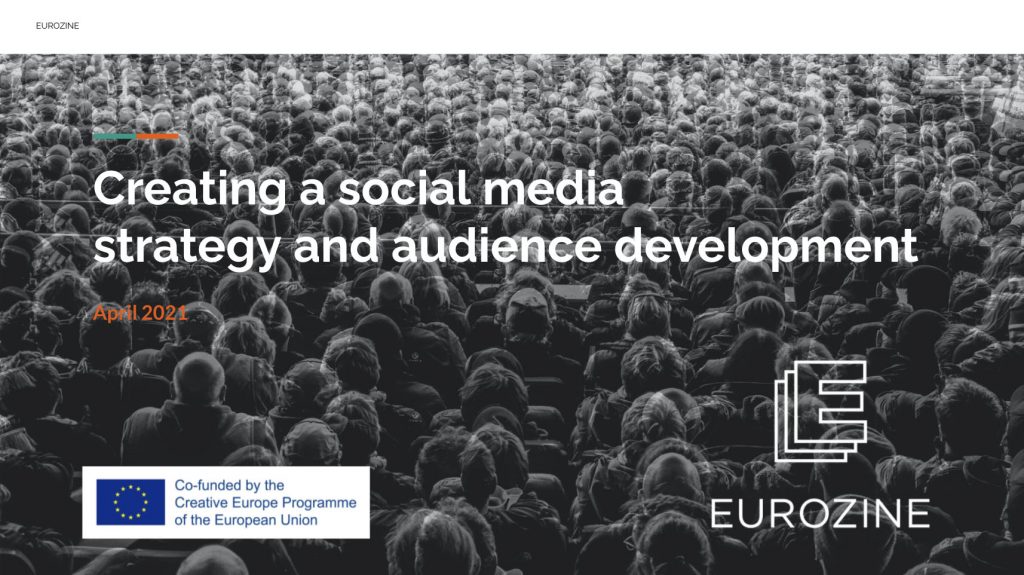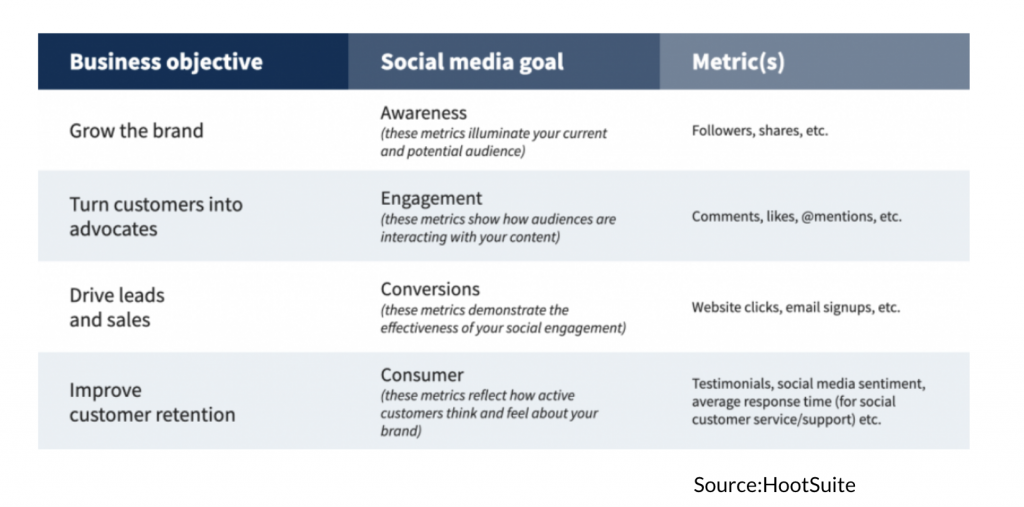Eurozine Online Workshops
Creating a social media strategy and audience development

On Tuesday, 20 April 2021 (15:00-17:30 CET), Eurozine held an online workshop on how to create a social media strategy and audience development. The workshop was organised and moderated by Merve Akyel, Eurozine’s Social Media Editor, and attended by 14 participants, including editors from Austria, Croatia, France, Germany, Ireland, Poland, Slovakia, and Wales.
5 Questions
The webinar started with a round of questions revolving around the participants’ needs and wishes when it comes to their social media presence. This preliminary stage allowed to take into consideration each participant’s tailored needs. Participants were encouraged to share these questions later within their organizations, to coordinate on their goals and needs. They were asked to determine their social media objectives and relevant metrics.

Audience
A series of questions were asked, and participants were advised to later discuss them within their teams. Furthermore, they were introduced to the concept of audience personas and how to create them to determine audience behaviour and preferences.
- Who are they? (E.g. job title, age, gender, salary, location, etc.)
- What are they interested in that you can provide? (E.g. entertainment, educational content, case studies, information on new products, etc.)
- When do they look for the type of content you can provide? (E.g. weekends)
- How do they consume the content? (E.g. read social media posts, watch videos, etc.)
Content
Participants were asked about their audience personas and encouraged to consider the following questions to determine what type of content/ social media themes would be suitable for them:
- What goals and challenges do they have?
- How can you help solve them?
Tools
Social media tools such as CrowdTangle, Google Analytics, Parse.ly, Social Flow, and Dash Hudson were introduced and discussed briefly.
Creative ways to share content on social media were introduced. They included, among others:
- Starting with a plan
- Creating a how-to-do video
- Attaching a gif
- Sharing relevant, helpful infographic
- Organizing a social contest
- Interviewing someone
Social media audit
Social media listening tools were introduced and participants gathered information about how to measure their efforts and progress on social media.
SEO
Search engine optimization (SEO) as a practice to increase the organic visibility of a web page in search results was introduced. The difference between paid and ‘free’ tactics was discussed briefly. A few points were made to enhance the search ranking of participants’ web pages. These included:
- Writing longer posts
- Producing relevant and up-to-date content
- Employing keywords
- Optimizing title, meta description, and headings
- Optimizing URLs
- Looking for backlinks
- Optimizing images
- Considering site loading speed
- Taking dedicated time each week to measure metrics
Finally, participants were advised on how SEO should not be the driving force, but part of a broader social marketing strategy.
Social media goal: Build and manage an engaged community
Working towards this specific goal, participants were referred to and learned how to measure key metrics related to community engagement.
Worst practices
Some common Frequently Made Mistakes were brought up, encouraging participants to critically evaluate their social media efforts so far.
Case studies
The brand Dove was evaluated in terms of how it connects with its target audience. We looked at New Yorker in terms of its usage of anticipation & personal tone, as well as its success in communicating experience.
Conclusion
- Start with a plan
- Learn how to do a social media audit and make it a habit
- Create a social media calendar
- Determine the right content mix (ie. social media rule of the thirds)
- Use social media scheduling tools such as Buffer, Hootsuite etc.
Eurozine Online Workshops are part of the project “Eurozine – Network of cultural journals”, which is co-funded by the Creative Europe Programme of the European Union.